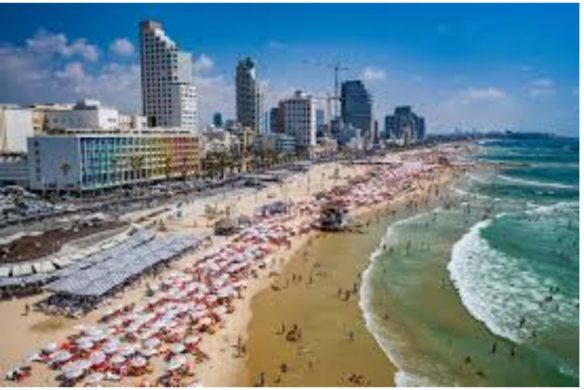
Next year fans will choose the site of the 2023 Worldcon: Chengdu, China and Memphis, TN (USA) are currently in contention. Beyond that? An abundance of new Worldcon bids have responded to SMOFCon 37-1/4’s call for questionnaires — Israel, Los Angeles, and Orlando joining the others already in the field. You’ll find all their Q&As here.
(In addition, the seated Worldcons – DisCon III (2021) and Chicon 8 (2022) have submitted answers.)
2023
CHENGDU IN 2023

Proposed Site: Chengdu, China
Proposed Dates: August or September 2023
Bid Leadership: He Xi, chair
Website:
English: CD-WSFC CHENGDU WorldCon in 2023
Chinese: http://www.worldconinchina.com/
Twitter: Chengduworldcon
SMOFCon 37-1/4 Questionnaire: Chengdu for 2023
MEMPHIS IN 2023

Proposed Site: Memphis, TN
Proposed Dates: August 23-27, 2023
Bid Leadership: Cliff Dunn and Kate Secor
Website: Memphis in 2023
Twitter: Memphis in 2023
Facebook: Memphis in 2023
SMOFCon 37-1/4 Questionnaire: Memphis for 2023
2024
GLASGOW IN 2024

Proposed Site: Glasgow, Scotland
Proposed Dates: August 8-12, 2024
Bid Chair: Esther MacCallum-Stewart
Website: Glasgow in 2024
Facebook: Glasgow in 2024
SMOFCon 37-1/4 Questionnaire: Glasgow for 2024
2025
BRISBANE IN 2025

Proposed Site: Brisbane, Australia
Proposed Date: Mid-August 2025
Bid chairs: Devin Madson and Leife Shallcross
Website: Australia 2025
Twitter: Australia 2025: Brisbane bid for Worldcon (@aus2025)
SEATTLE IN 2025

Proposed Site: Seattle, WA
Proposed Date: Mid-August 2025
Bid chair: Kathy Bond
Facebook: https://www.facebook.com/Seattle2025/
Twitter: Seattle2025
SMOFCon 37-1/4 Questionnaire: Seattle for 2025
2026
JEDDICON IN 2026

Proposed Site: Jeddah, Saudi Arabia
Proposed Date: To Be Determined, 2026
Bid chair: Yasser M. Bahjatt
Facebook: JeddiCon (created for the 2022 bid)
SMOFCon 37-1/4 Questionnaire: Jeddah for 2026
LOS ANGELES IN 2026
Proposed Site: Anaheim, Long Beach, or Los Angeles, CA
Proposed Date: August 2026
Bid chair: Joyce Lloyd
Facebook:
SMOFCon 37-1/4 Questionnaire: LA for 2026
NICE, FRANCE IN 2026

Proposed Site: Nice-Côte d’Azur, France
Proposed Date: August 12-16, 2026
Bid chairs: Ugo Bellagamba, Pascale Chabrillat-Trahin
Website: Nice2023 (created for 2023 bid)
Facebook: Nice2023
SMOFCon 37-1/4 Questionnaire: Nice for 2026
ORLANDO IN 2026
Proposed Site: Orlando, FL
Proposed Date: Early to mid-August 2026
Bid chair: Adam Beaton
SMOFCon 37-1/4 Questionnaire: Orlando for 2026
2027
TEL AVIV IN 2027

Proposed Site: Tel Aviv, Israel
Proposed Date: August 2027
Bid chair: Gadi Evron
Discover more from File 770
Subscribe to get the latest posts to your email.

Just a click to follow the fun and games,
Likewise, a click… (while I dream of a time when I will consider long-distance travel again)
Are any in-person cons likely for next year? My PCP figures June before I’ll get vaccinated and she figures late summer before we complete the first round of vaccinations. It seems likely everything will be virtual through the beginning of twenty two.
Now playing: Catherine Asaro’s “Ancient Ages”
Cue up another round of outrage that we are still permitting a bid for Saudi Arabia.
???
What’s the alternative? A list of countries that are not allowed to bid? Who makes the list? And how do they get smart enough to do so?
@bill,
there are international non-governmental bodies that track things like human rights records, alignment with democratic ideals, etc; their findings and evaluations can be used as a non-biased (for Fandom anyway) source. I noted earlier in the year that all of the countries that have hosted Worldcons to date have been in the top 25 on one such list, while some on the current bid list are found well beyond 100th place.
WSFS does not “allow” bids, it sets criteria and accepts bids (whether they meet that criteria or not) and leaves it up to the voters to decide the acceptability.
But we (voters) ought to have some yardstick we can agree upon. I’d personally start with – has to be a democratically elected government and then go from there (with nuance: Iraq allowed people to vote under Hussein, but it still wasn’t. democracy)
I think our future voting history should make it clear to the bids themselves whether they should submit or not; if voters do their duty, vote intelligently and roundly reject bids from countries that, say, by way of example, imprison people in concentration camps, torture and execute them because they belong to a religious minority.
But thats just me. Maybe that country’s literary ambitions mitigate such behavior, you know, what’s a couple of hundred thousand lives worth when compared to tens of thousands of potential book sales, right?
Steve — There’s no way that I could support a Chinese bid, nor a Saudi Arabian one. I think we are of like minds about that.
But I don’t blame Saudi or Chinese fans a bit for wanting to host, and I don’t think that they should have self-censored themselves into not bidding, as you seem to.
What I was responding to was your use of “permitting”. I don’t think Worldcon should a priori eliminate countries from submitting bids, nor cede that power to any other group. Worldcon should “permit” groups from any country to make a bid, and leave it to the judgement of the voters to select the best one. They’ve done fine in the past, and will no doubt continue to do so.
I think of it like a Puppy book getting onto the Hugo Ballot
Aside from attempts to logroll the entire ballot, I don’t think that a book by a particular author should be banned from the ballot, but the voters are empowered to vote accordingly.
So yeah, if Wright, or Correia or their ilk did manage to get enough nominations again…you don’t ban them a priori, but you do vote as one will.
The same with Hugo bids from countries where I would definitively not want a Hugo con to be held, even a virtual one.
I will have a difficult time supporting any bid that would situate the Worldcon within a country that falls much below an eight on the Democracy Index.
Basically, if there isn’t a national commitment to pluralism and civil rights, I don’t want no part of that.
-click-
As I hope most of the people here know, WSFS rules are very much written to avoid having any form of Central Authority (Board of Directors, Chair, Boss, whatever you want to call it) that “prohibits” bids for Worldcon or works for the Hugo Awards. WSFS tries to vest as much authority as it can in the members themselves. The authority of the Hugo Award and Site Selection administrators is “ministerial” in nature, with only limited individual judgement permitted. This of course infuriates people who think that The Boss should do things in a particular way. it also runs the “risk” (as all democratic societies do) of the voters making the “wrong” decision. What is wrong depends on your own judgment. (I live in a county where about 70% of the voters appear to be convinced that the 2020 US presidential election is “wrong,” so this sort of thing works in multiple ways.)
As I have said before, WSFS democracy is a bunch of people looking at each other and saying, “I trust naught but thee and me, and I’m none too sure of thee.” Accordingly, they don’t like anyone other than themselves individually from making decisions. This makes the “sausage making” of democracy really obvious to everyone, and it’s not always very satisfying.
OlavRokne: That criteria would unseat the next two Worldcons plus all of the US bids, wouldn’t it?. I see your point (and I’m not especially proud of my own country, although I hope we’re about to start getting better), but I’m concerned about setting up any criteria that effectively disqualifies the majority of the places that have ever hosted Worldcon.
I try to not let the perfect be the enemy of the good. I’m still plumping for Chengdu. Sure, China has problems but what country doesn’t? Engagement can bring real change.
I acknowledge that I may be influenced by the fact that having visited Memphis twice I found it to be an awful dump. Of course, YMMV.
@steve “Iraq allowed people to vote under Hussein, but it still wasn’t. democracy” Hey, just like us! 🙂
There are two things to consider:
1. policies national governments place on their population that don’t directly affect visitors
2. policies national governments have that directly impact visitors and people considering visiting
I don’t think 1 is a lesser issue but it makes sense that 1 is left to Worldcon members decide by voting.
Point 2 though are issues that (potentially) change with Worldcon members can actually attend the Worldcon. It directly shapes what the Worldcon will be.
For example, the Saudi Arabian government has denied entry to Israeli citizens and people with evidence of having visited Israel. Both the Israeli and Chinese government have passed laws that make some international public criticism punishable. The US government implemented some sweeping restrictions on citizens of some nations visiting.
I’m not saying it is feasible to come up with rules disallowing bids on the second criterion. However, “who can attend a Worldcon” is a legitimate structural issue around which it does make sense to have minimum standards.
That is a reasonable point. I think that is part of what I’m trying to get at with thinking about two aspects of a national government’s behaviour when considering bids. Maybe engaging with China is part of the process of improving the Chinese government’s approach to human rights? I don’t want to directly debate that question here but it is a legitimate position and one that gets different answers if we substitute different countries (Cuba say or UAE or Myanmar etc).
However, the second aspect is different. Can a WSFS member visit said country (i.e. will they be let in) and can they visit without being at risk of arrest just for being who they are? The question of engagement with a country becomes irrelevant if a member is already effectively banned.
Put another way my point 1. is a question about a member deciding whether to boycott a country or not (so to speak – not necessarily a formal boycott) but point 2. is about whether the national government of said country is already boycotting the member!
@Camestros Felapton
The multi-billion dollar NBA has not shown this to be successful (and in fact, it appears that China is pushing its version of human rights onto the NBA); there’s no reason to think that a million dollar Worldcon will have any positive effect.
Firstly, I absolutely agree that any location should be allowed to bid and that there should not be some committee entitled to reject bids. If a bid is inadequate, then voters should vote against it.
As a European who can’t fly I don’t have a personal interest in any of these bids other than 2024 and 2026 (and it looks like 2024 is being unopposed?).
There are, IMO, three different sets of issues that voters should consider when deciding on whether a country (as distinct from practical questions about a particular venue/bid team) should be suitable.
One is a moral question about how that country treats its own citizens. If a country’s regime is oppressive, but they will treat tourists acceptably, then there is a genuine moral question on whether you regard the oppression as sufficient reason to decline to go and also a separate question about whether international contact endorses the regime or constitutes engagement that may improve that regime.
The second is a question of laws and practice within the country that may make attending the conference difficult or unsafe for certain members of the Worldcon community – this could range from countries where LGBT+ people are criminalised, from banning political expressions that are negative about the national regime (not merely within the country, but also arresting people on entry who made adverse comment before travelling, in some cases years before travelling), to certain places in the United States where police forces are dangerously racist against non-white persons that it could be unsafe for non-white Worldcon attendees.
The third case is countries with restrictive immigration (well, visitor) policies that will make attendance impossible or excessively difficult for any attendee from certain countries. There is no country, anywhere in the world, which could be relied upon to permit entry to everyone who might want to attend a Worldcon. This is a good argument for rotating Worldcon through as many different countries with as diverse a set of immigration policies as possible. If we are to reject Saudi Arabia for refusing entry to Israelis, then should we not reject the United States for refusing entry to Syrians or Israel for the same to Iranians?
This is not to say that these things are not bad, but to say that if we set an excessively high standard, then WorldCon could not take place at all, and that I simply do not believe that the American fans who form the majority of WSFS members most years (and pretty close to a majority even in the years when a WorldCon is in Europe) are going to reject the USA, so any standard we should seek to set must be one that doesn’t demand that the rest of the world meet a standard that the USA can’t meet.
I do hope that SMOFCon and Fannish Inquisition questionnaires have much more specific and detailed questions about immigration policies and about legal and practical problems for LGBT+, ethnic minority, disabled, religious and non-religious fans. Can a same-sex couple travel safely to your country? An unmarried opposite-sex couple? Is a black person going to be at greater risk than a white person? Are there places of worship for a variety of world religions? As well as venue accessibility, how are disabled people treated in the community? Are hate crimes taken seriously by the police or dismissed because of prejudice?
@Richard Gadsden
In 2019, about 250 black people were killed by police in the US. I don’t want to imply that they had it coming, but the majority of them willfully and criminally put themselves into a position where any reasonable observer could have expected that outcome, by threatening or attempting to kill or wound a police officer or 3rd party. Yes, there are cases where non-white people have violent interactions with police where there is no explanation but racism possible, and these are tradgedies and that America doesn’t do more to eliminate them is awful. But in a country with over 35 million black people, the data simply don’t support what you suggest — being “non-white” does not make a Worldcon attendee unsafe in this country.
Richard Gadsden: Are there places of worship for a variety of world religions?
Yeah, no. “Are people of any religion treated equally and allowed to practice their religion without infringement as long as they aren’t infringing on anyone else?” will do nicely.
Even a country with a satisfactory rule 2, but a poor rule 1 doesn’t leave me happy. I guess we can go to foreign countries secure in the knowledge that it’s alright for us, even if the locals are unable to participate, but I really can’t see the point.
I was thinking more of people asking practical questions like “will I be able to find nine others to form a minyan on Shabbat?” or “is there a Roman Catholic priest able to take my confession and conduct a mass?” or “is there a room nearby with signage pointing to Mecca so I can perform salat?” – and there are countries where the answer is not merely “no”, but “that is against the law”.
There are people who do have regular requirements from their religion, and while most such religions have doctrines that do allow for them to be omitted when unable to safely perform them (especially when travelling), it’s still the case that most believers prefer not to have to rely on exceptions.
I would take the absence of a place of worship for a major world religion as a sign that there is probably some serious oppression going on – any city that a WorldCon is likely to go to is also one where there are likely to be people from all major religions, and they are going to have established a place of worship unless they were prevented from doing so or unless they have been prevented from settling and living there.
If it is theoretically possible to establish a church and yet no church has been established, then the likelihood is not “the Christians never got around to it”, but “there is a practical persection but not a theoretical one”.
Richard Gadsden: I would take the absence of a place of worship for a major world religion as a sign that there is probably some serious oppression going on
While I understand your line of thought, it is not the obligation of any Worldcon bid or concom to make provision for religious houses of worship for its attendees, and I would strongly object to and resist any attempt to make that a criterion for a Worldcon.
Site Selection voters evaluating “Are people of any religion treated equally and allowed to practice their religion without infringement as long as they aren’t infringing on anyone else?” will likely look at the presence or absence of houses of worship for various religions as one of the indicators whether a proposed host city/country has freedom and equality of religion — but it’s far from the only indicator, and it is not the obligation of any Worldcon bid or concom to make provision for religious houses of worship for its attendees.
Richard Gadsden on December 3, 2020 at 11:13 am said:
I’d change that to “how that country treats people living under its jurisdiction” or something similar. There are countries who treat its citizens well, while a large section of the population lacks full citizenship and is treated poorly. I don’t think one can judge the human rights situation in for example Qatar or Dubai without considering the conditions for migrant workers, or Israel without considering the population of the occupied territories.
It is not the obligation of any bid or concom to make provision for a variety of restaurants, but we still ask what the dining scene is like. And the idea that something are “made” criteria is nonsense – criteria are whatever the voters wish to vote on.
The advantage of my preferred question is that it is something that can be answered objectively (“here is the nearest synagogue”) rather than requiring people to analyse the laws of their own country – in many of the cases that we are most interested in, a country that is likely to have prohibitions on criticising their laws.
Richard Gadsden: criteria are whatever the voters wish to vote on
Yes, but the discussion here is the minimum criteria which Worldcon bids are expected to meet. Site Selection voters are welcome to vote based on whatever criteria they wish to consider — but it is inappropriate to demand that Worldcon bids comply with any specific criteria relating to religion.
It’s bad enough that a significant percentage of Americans are trying to make their religious beliefs into laws that everyone has to follow. Any attempt to impose that sort of religiosity on Worldcons will be strongly resisted by me — and, I suspect, by a lot of other people.
No it isn’t. The answer to that is “none”. There are no minimum criteria, and the suggestion that there should be any is inappropriate. You can hold a WorldCon in a single room with a capacity of 30, as CoNZealand demonstrated. The only required activity is the WSFS meeting.
The question is what information should be made available to voters in order that they be able to make their own decision according to their own criteria.
I think we are completely talking past each other. I am not “demand[ing] that Worldcon bids comply with any specific criteria relating to religion.” – I am suggesting information that voters might find useful in assessing whether or not the venue meets the criteria that they, the voters have.
I would not trust a bland statement from officialdom that “all religions are treated equally in country X”. But a statement that there are no synagogues or gurdwaras in the country and the nearest mosque is 1000km away would be a much clearer indication of the real situation on the ground.
@Kevin Standlee: I thought I was pretty clear on WSFS not setting criteria for bids: “WSFS does not “allow” bids, it sets criteria and accepts bids (whether they meet that criteria or not) and leaves it up to the voters to decide the acceptability.”
But just to be absolutely clear: Kevin identifies the fact that WSFS has maintained a “voters/members decide” for quite some time, not to mention “sticking to its rules and By-Laws”, despite extreme provocations in the past, and I for one admire the experiment in (nearly) pure democracy that is WSFS.
What I was addressing was: IF the voters of WSFS determine that Bids should go through some kind of a vetting process, there are organizations entirely external to WSFS (which means, no influence by WSFS) that provide evaluations and measurements of country’s compliance with ideals that the community generally desires, and I would recommend utilizing one or more of those as a method for vetting, rather than some internally created set of guidelines – precisely because the US (where most WSFS activity is centered) hosting events is problematic for some (or at least the US as it is constituted now).
Personally, I’d not kick if some such method were adopted and ended up excluding US events for a while (those criteria might end up leaving us with only Canada, the Nordic countries, Ireland, New Zealand and Australia as options for a while – and that’s not necessarily a bad thing).
@Camestros Felapton: Your parsing – how it affects traveling individuals/citizens from other countries – is, I believe, the right place to place such vetting, again, if it become desirable to do so.
Affects on travelers goes beyond religious or “lifestyle” issues: it extends also into the realm of surveillance that breaches personal privacy. My article on the Chinese Worldcon bid contains a fair number of links to government and business resources that evaluate such things for travelers.Here.